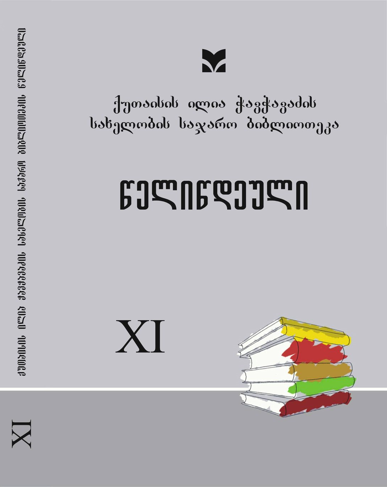მავრცობი ხმოვნები ქართლურში
DOI:
https://doi.org/10.48614/yk.11.2019.84-100საკვანძო სიტყვები:
ქართული ენა, ქართლის დიალექტი, ენათმეცნიერება, მრავლობითი ბგერები, პოზიცია, ფუნქცია, გაერთიანებაანოტაცია
Distribution of the Kartli dialect on a wide territory caused the separation of Kilokauri (small dialectic) speech. Relationship with other dialects also promotes this difference. Unification tendency is frequent in the places of connection with ‘neighbor dialects’. Thus, distinctive lingual events for Upper Imeretian, Meskh-anJavakhetian, Mtiuletian, and Kakhetian are more confirmed in Kartli. The migration of the population is frequent in the villages of Kartli from the different corners of Georgia. Also, It is proved by the changeovers of vocal codes, usage of extending vowels ‘a’ and ‘i’ in Kartli. We studied the disquisitive question on the Kilokauri (small dialectic) level in Georgian literary language and other dialects of the Georgian language. We used for analysis the dialectic texts recorded by Georgian linguists in the villages of Kartli at different times that we compared chronologically to the material we had found. Extending the vowel ‘a’ in Kartli, like literary Georgian language and other dialects of the Georgian language, is used with nouns and other parts of speech. Vowel ‘a’ is expressed as with proper vowel-root nouns and pronouns in a suitable situation in an Ergative case too.
Extending ‘a’ is often used in Kartli in this case, when we have a monosyllabic verb after a noun with Dative case-ending. In the same position except for a noun, extending ‘a’ is met with pronouns, particles, adverbs. Extensions of Vowel ‘a’ with the dative case is a widespread case in Kartli. Vowel ‘a’ seems to be the constant case ending in the speech of Kartli. Dialects of Algeti Valley and Tsitelsopeli of Kvemo Kartli represents an exception, where there are consonant-root nouns extended by a vowel ‘a’ without dative case-ending. Proper nouns in the dative case usually have the nasal vowel ‘a’. Definitive in the Genitive case is met with extended form in inversive structure. In sub dialects of Kartli dialects, ‘a’ and ‘i’ may be alternated to each other with Genitive and Instrumental cases. Extending the vowel ‘i’ is actively used with vowel-root ending proper nouns. Mostly ‘a’ is used in Kartluri of Prone Valley. It seems ‘i’ and ‘a’ have the same function. The difference between them is according to the places of distribution.




